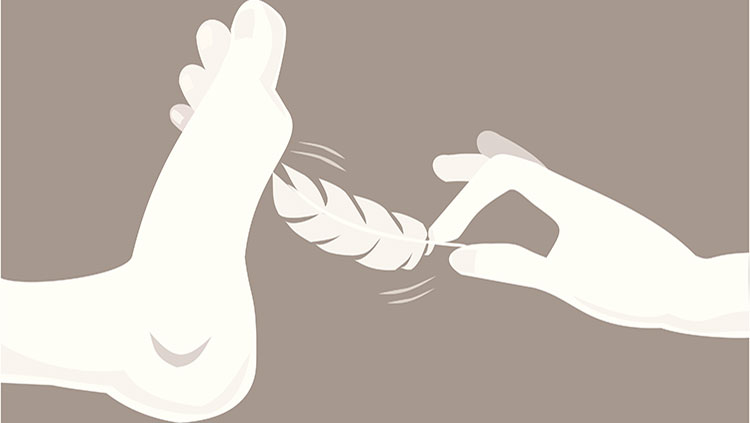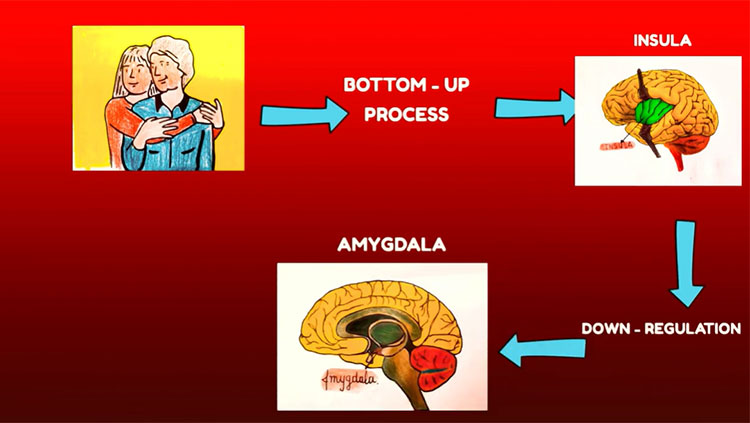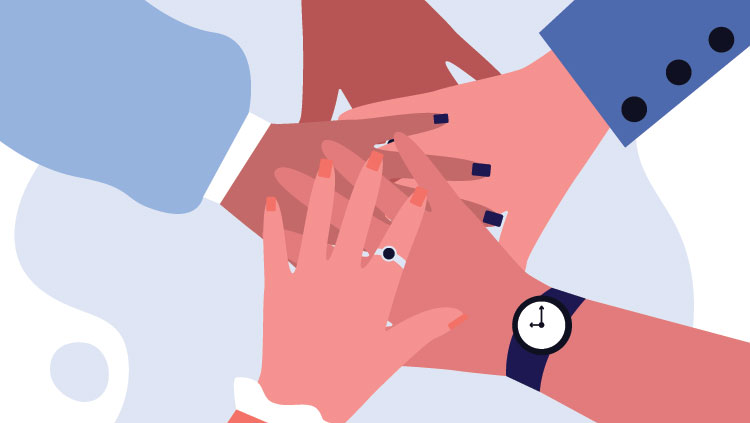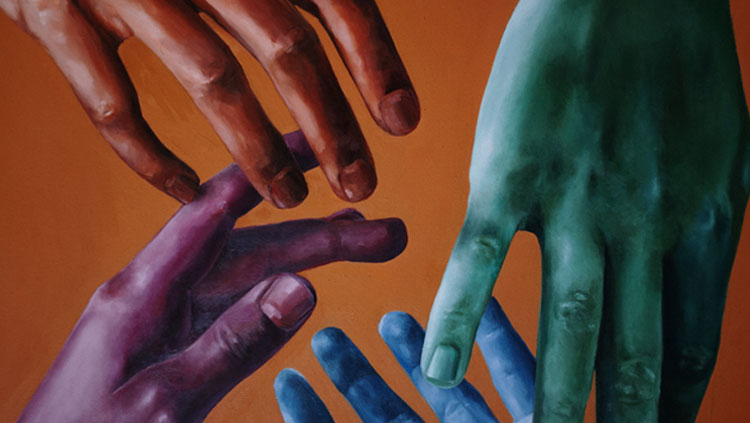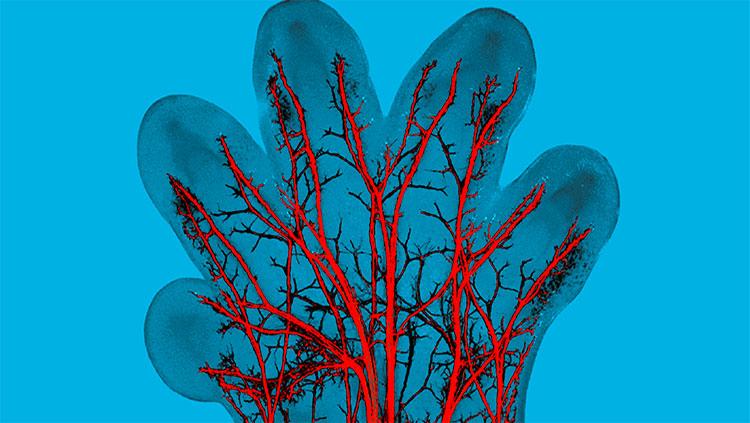Why Can't You Tickle Yourself?
- Published2 Dec 2021
- Source BrainFacts/SfN
Pressure on certain sensitive parts of the body can lead to a tickling sensation. Yet even the most ticklish person will have a hard time trying to tickle themselves. That’s because our brains anticipate our touch, effectively canceling out our own tickles.
Storyboard and animation produced by Midnight Snacks for BrainFacts.org.
Scripting by Tristan Rivera.
Editorial Production by Tristan Rivera and Juliet M. Beverly.
Scientific Review by Konstantina Kilteni.
CONTENT PROVIDED BY
BrainFacts/SfN
Transcript
While laying out on a warm day, you feel something on the bottom of your foot.
[Whistling] An ant is making its way up, so you brush it off [woosh].
Usually, a brush like that would feel ticklish. [Hmm] Why not this time?
Because your brain's ability to [click] anticipate your own touch can cancel out your own tickle.
The feeling [swash] of a tickle arises from two forms of pressure on sensitive parts of your body:
[Woosh] a light pressure [swoop], [distorted whistling] like when the ant was crawling up your foot, triggers a tickle sensation [cling, whistling] known as knismesis, [swash] making you want to scratch or wipe it away.
A tickle from greater pressure, known as gargalesis, is what we usually associate when someone tickles you. [Cling, oh] This may make you tense up, [laughing] jolt, or laugh.
But even if you tried, it’s unlikely you can tickle yourself. That’s because your brain’s cerebellum predicts when you are about to apply pressure to your own body.
The cerebellum communicates [light zap] with other parts of your brain, sending signals when and where you’re moving [flutter] and how much pressure you are likely to apply when you touch something.
Since your brain has information to execute and sense your own touch, [waning whizz] it can reduce activity in the somatosensory cortex: the brain area that responds to pressure and touch.
This cools your reaction to your own touch and allows you to get back to your beach day.
[Light splash, swoosh, light splashes]


